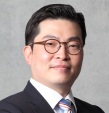South Korea’s Role in the U.S. Rebalance to Asia
Date & Time: 04/06/2015 5:00pm – 6:30pm
Location: University of Maine Orono, ME 04469
Speakers:
– Dr. Jung-Yeop Woo | Research Fellow, Asan Institute for Policy Studies
– Dr. Van Jackson | Visiting Fellow, Center for New American Security and International Affairs Fellow, Council on Asian Affairs
Moderator:
– Clare Hubbard | Associate Director of Programs, Korea Economic Institute of America
Description:
On April 6, 2015 the Korea Economic Institute of America (KEI) co-hosted a panel with the University of Maine on South Korean perspective of the U.S. rebalance to Asia. Panelists Dr. Jung-yeop Woo and Dr. Van Jackson discussed the successes and difficulties of the intended signal U.S. of commitment to the Asian region.
Dr. Woo started the discussion by framing the U.S.-Korean alliance through the Mutual Defense Treat of 1953. The initial goal of the treaty was to protect South Korean from North Korean aggressions but as Korea’s economy grew there was a growing expectation from both sides of the partnership for South Korea to participate in the American democracy building and global stability initiatives, the most obvious mission being to participate in the U.S. rebalance to Asia. But participation in the U.S. rebalance puts South Korea in a difficult position of navigating between the U.S. (one of its strongest allies) and China (a permanent neighbor) as it tries to appease both larger powers and its own citizens.
Dr. Van Jackson discussed from a U.S. perspective how Asian allies and partners can best contribute to local order in their own back yard. In particular, Dr. Jackson gave three examples of military action South Korea can take to help the rebalance: improve the U.S. military transition to the Asia-Pacific, steer regional military building from oppressive to defensive, and maintain a military balance with North Korea. In addition to military actions, South Korea can help preserve a strong liberal order in the region by joining the Trans-Pacific Partnership (TPP). Dr. Woo commented that while South Korea has expressed intentions to join the TPP it would act as a back door free trade agreement with Japan–which the country is not yet ready for.
Students and faculty from the University of Maine asked questions on China’s view of the U.S. rebalance, the implications of South Korea joining the Asia Infrastructure Investment bank (AIIB), North Korean defectors, territorial issues in the South China Sea, and how to improve regional cooperation with South Korea as an exemplar.
Background
In 2011 the Obama administration declared a re-allocation of diplomatic and military resources to the Asia-Pacific in recognition that dominant political and economic issues of the 21st century will be decided in that region. Despite America’s hopes that the “Asia Pivot” will support a peaceful, stable, and economically prosperous Asia-Pacific, many countries are concerned with the intentions of the rebalance and question U.S. commitments to the policy. With the U.S.-South Korean alliance taking an increasingly global role and South Korea’s growing relationship with China, what roles can South Korea take in the U.S. pivot?
For more information on this event: http://www.keia.org/event/south-koreas-role-us-rebalance-asia

 Facebook
Facebook Twitter
Twitter



